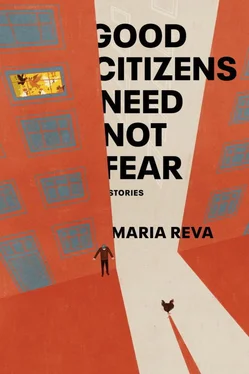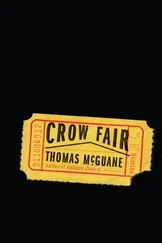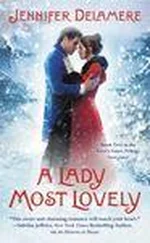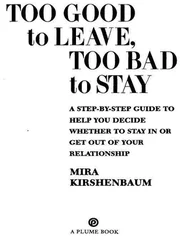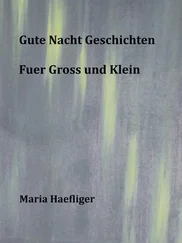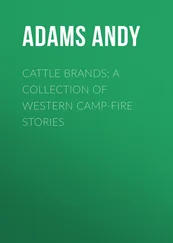Maria Reva - Good Citizens Need Not Fear - Stories
Здесь есть возможность читать онлайн «Maria Reva - Good Citizens Need Not Fear - Stories» весь текст электронной книги совершенно бесплатно (целиком полную версию без сокращений). В некоторых случаях можно слушать аудио, скачать через торрент в формате fb2 и присутствует краткое содержание. Город: New York, Год выпуска: 2020, ISBN: 2020, Издательство: Doubleday, Жанр: Современная проза, humor_satire, на английском языке. Описание произведения, (предисловие) а так же отзывы посетителей доступны на портале библиотеки ЛибКат.
- Название:Good Citizens Need Not Fear: Stories
- Автор:
- Издательство:Doubleday
- Жанр:
- Год:2020
- Город:New York
- ISBN:978-0-38554-529-7
- Рейтинг книги:3 / 5. Голосов: 1
-
Избранное:Добавить в избранное
- Отзывы:
-
Ваша оценка:
- 60
- 1
- 2
- 3
- 4
- 5
Good Citizens Need Not Fear: Stories: краткое содержание, описание и аннотация
Предлагаем к чтению аннотацию, описание, краткое содержание или предисловие (зависит от того, что написал сам автор книги «Good Citizens Need Not Fear: Stories»). Если вы не нашли необходимую информацию о книге — напишите в комментариях, мы постараемся отыскать её.
Good Citizens Need Not Fear: Stories — читать онлайн бесплатно полную книгу (весь текст) целиком
Ниже представлен текст книги, разбитый по страницам. Система сохранения места последней прочитанной страницы, позволяет с удобством читать онлайн бесплатно книгу «Good Citizens Need Not Fear: Stories», без необходимости каждый раз заново искать на чём Вы остановились. Поставьте закладку, и сможете в любой момент перейти на страницу, на которой закончили чтение.
Интервал:
Закладка:
“Or have it look at you,” I muttered.
He placed a stack of laundered kerchiefs on his counter, available for rent to women who wished to cover their hair for worship but had forgotten to bring their own—a new addition to his business, following repeated requests.
“So long as the sheet doesn’t affect attendance,” Konstantyn Illych warned.
At the agency, we’d shared a courtyard with the Transport Workers’ Union. One afternoon, on break, I’d overheard two railway engineers debate the best location for a new freight rail yard. The first potential spot sat north of Kirovka and would require the construction of a bridge. The second sat south of Kirovka, over Holinka Ridge, and would require the dynamiting of a tunnel. At the mention of Holinka Ridge, I put down my fish sandwich. The pilgrimage route I’d been monitoring passed over Holinka Ridge. Twenty rows of freight cars would lob off the procession, remove the need for policing any fence. I envisioned myself free from the tedium of chasing down pedestrians, promoted to more rewarding work.
Soon the engineers were yelling at each other, one waving her arms to make herself look larger, the other sitting with arms and legs crossed, unmovable in her granite-gray suit. At last they agreed to flip a coin. If a coin could break the tie between the Soviet Union and Italy in the 1968 European Football Championship, a coin could solve this much simpler matter.
A furious rummaging of pockets ensued.
But no coin!
The engineers turned to the table next to theirs, where I happened to be sitting. Their eyes flitted from my chin, still blotched from a not-unrecent adolescence, to my fish-flake-littered trousers, to the twiggy ankles that stuck out of them. The women’s hard faces thawed with pity. I set my jaw. They must not have known who I was or where I worked.
I slid a copper coin from my pocket.
“If you wouldn’t mind flipping it for us,” said the engineer in the suit, arms still crossed. “We need a neutral arbiter.”
“Oh, I couldn’t.” I was not being bashful—I had never flipped a coin.
A small audience of transport workers gathered around us. I waited for a volunteer to step forward, but none did. The unspoken rule: Your coin, your toss.
“Heads, we build south,” said the engineer in the suit.
“Tails, north,” deduced the other.
The transport workers cheered me on. Emboldened, I shook the coin between my palms like a die. Heads, heads, I chanted in my mind. I flung my hands out, imagining I were releasing a bird. The coin made a lazy arc over my head, bounced off my shoulder, and landed on the engineers’ table, where it rolled on its side, slowly and pathetically, before falling between the wooden slats. A few spectators laughed. Neither of the engineers would deign to stoop for the coin. I did not want to stoop for it either, but soon I was on all fours, crawling under the table as the crowd goaded me on. Blood rushed to my face. The concrete grated my kneecaps. I hated the onlookers but hated myself even more, spineless as usual.
The result: tails.
I’d seen a one-kopek coin countless times before, of course, but now found myself peeved by the look of its squat elaborately serifed number, the folksy ears of wheat encircling it.
As I slowly rose from under the table, coin lodged in my fist, my eyes met the suited engineer’s. My expression must have been apologetic: her shoulders dropped almost imperceptibly—she knew that she had lost.
I focused my gaze on a spot above the crowd, a blemish on the tiled wall behind them. The verdict came meekly, my tongue simply testing it out: “Heads.”
“Heads,” declared the suited engineer, voice hoarse.
“But neither of us saw it,” the other engineer pleaded.
“Heads,” shouted the crowd, over and over.
“Heads,” I shouted with them.
The same hardware sales boy as yesterday intercepted me by the glue section of his tent. “Which type you looking for?”
Hundreds of tubes of all sizes and colors hung before me. I pretended to read their labels, wishing the boy would leave me alone.
He asked, “Permanent or semipermanent?”
He asked, “Food grade?”
He asked, “Medical grade?”
He asked, “Spray-on?”
“Just the standard,” I conceded.
He asked, possibly rhetorically, “What is standard?” He unhooked a fat horseradish-colored tube, then a pink thimble-size one. “There’s the standard glue for wood planks, and the standard glue for the heirloom teapot your wife doesn’t know you broke.”
“Closer to the latter.”
The boy chuckled, conspiratorial, as if he himself had been married for years, had shattered many teapots. “Now,” he said in a low voice, “are we talking vitreous porcelain, new Sèvres porcelain, or soft feldspathic porcelain?”
Too many minutes later, on my way back to the tomb, I stopped by a news kiosk for an issue of Izvestia. Recently the publication of archives had slowed. Readers were satiated. Back when they knew less, they’d felt safer.
I came upon an article about the rail yard that had been constructed south of Holinka Ridge. I’d almost missed it, wedged as it was between an advertisement for pantyhose and another for tax lawyers. During the rail yard’s twelve-year operation, the article informed its readers, the pilgrims who had died crawling under trains in an attempt to reach the monastery numbered:
Men 6
Women 7
Children 2
I hadn’t known the true numbers. Shortly after the construction of the rail yard had begun, my superior had declared the pilgrimage issue solved and taken me off the case. I’d ignored the rumors that there had been injuries, even deaths. Now I stared at the neat stack of numbers, reprinted from a railway report. I wondered, uselessly: Why were the children a separate, ungendered category? But as soon as I thought this, my mind conjured them—two girls, then two boys, then a girl and a boy, darting under the maze of freight cars, losing themselves in their game—and I clamped my eyes shut, as if I could unsee them.
If the rail yard had been built instead in the northern spot, zero pilgrims would have died. But the engineer who had vied for the southern rail yard had been the more charismatic, resolved one—surely she would have won, even without a coin toss, even without me skewing the result.
I waited until nightfall to mend the mummy. Inside the tomb, I kept the lights off to avoid attracting attention; a nearby streetlamp provided just enough illumination and, for the finer work, I was armed with a key chain flashlight. Glue at the ready, I reached into my pants pocket for the saint’s teeth, but found only a small hole where before there had been none. I searched the other pants pocket, then all four pockets of my coat. My hand returned to the first pocket, to confirm the teeth were still missing.
If the hole had already been there, before the teeth, surely I would have caught it—the pants were my last remaining pair presentable enough for work, and I was vigilant about identifying and repairing any damage—and I would not have used a compromised pocket for valuables. For a moment I entertained the possibility that the teeth had chewed their way out. But no, I told myself, this was simply a case of bad luck, even if I did not believe in luck, bad or good.
I dreaded explaining the saint’s disfigurement to Konstantyn Illych. I could not keep it hidden under the linen for much longer—Konstantyn Illych had asked to check on the saint the next morning, and I’d lied and said I’d temporarily misplaced the sole key to the case. If he saw that the teeth were missing, perhaps he’d think I gouged them out, and sold them on the black market. On occasion, relic hunters did visit the tomb. They were easy to spot. They’d kneel the lowest, pray the loudest, before offering money for a tuft of holy hair, a sliver of ear. From their corner-mouth whispers I had learned that five heads of St. John the Baptist were in circulation; thirteen palms, nineteen feet, and twenty-one skull fragments of Jezebel—whatever the dogs didn’t eat; the foreskins of Christ and His footprints were particularly popular, as were the moans of David, the shivers of Jehovah.
Читать дальшеИнтервал:
Закладка:
Похожие книги на «Good Citizens Need Not Fear: Stories»
Представляем Вашему вниманию похожие книги на «Good Citizens Need Not Fear: Stories» списком для выбора. Мы отобрали схожую по названию и смыслу литературу в надежде предоставить читателям больше вариантов отыскать новые, интересные, ещё непрочитанные произведения.
Обсуждение, отзывы о книге «Good Citizens Need Not Fear: Stories» и просто собственные мнения читателей. Оставьте ваши комментарии, напишите, что Вы думаете о произведении, его смысле или главных героях. Укажите что конкретно понравилось, а что нет, и почему Вы так считаете.
